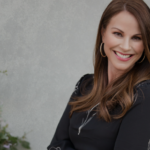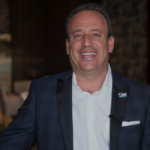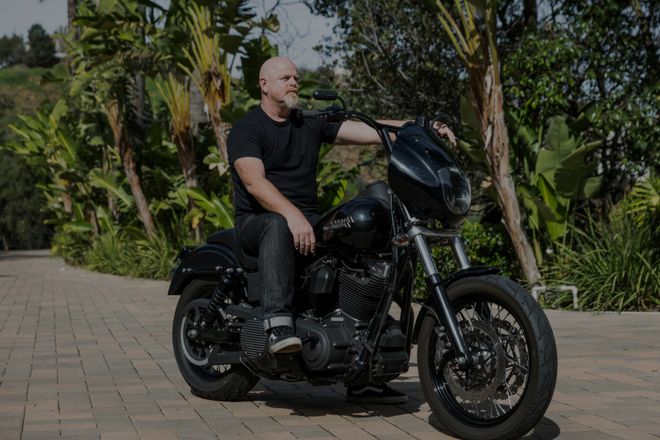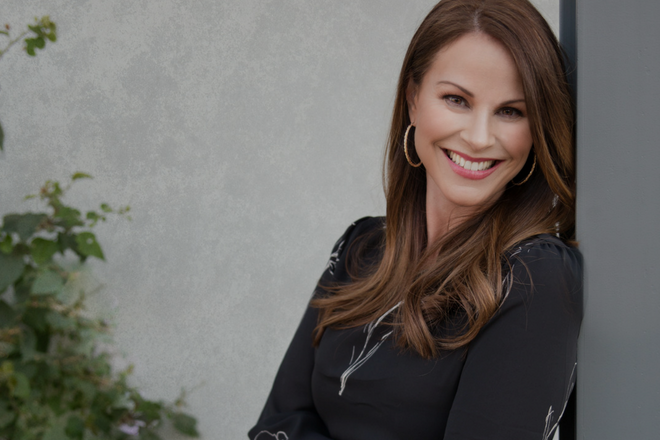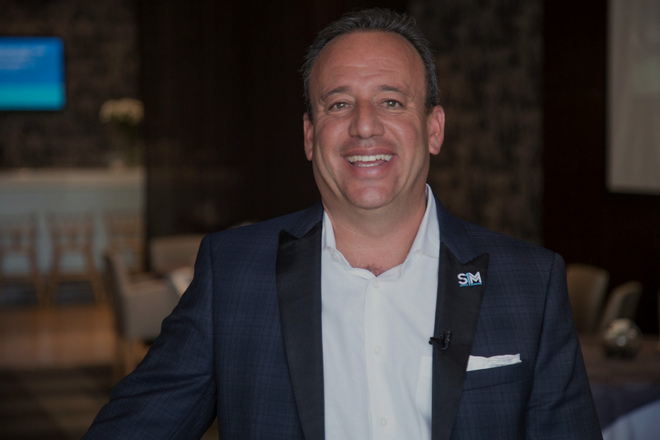“I’ve always believed, since I recognized it and started trusting it, that my stomach is far more intelligent than my head.”
Steve Sims – Founder of Bluefish Luxury Concierge; Knowing your value; Trusting your gut; Experience brings the greatest advice; Understanding your client’s needs.
Segment 1: (Length :04:00) – General Updates; Introduction to Steve Sims and his journey as an entrepreneur; Learning to surround himself with the affluent; Creating the concept for the concierge; Knowing your value.
Steve’s finer points:
“I was a bricklayer in East London that talked my way into getting a job in Hong Kong as a stockbroker, if you can believe that.”
“I thought, “I want a job. Who’s going to employ me?” Funny enough, you don’t have to be a genius to work out that poor people don’t employ you, so I started hangin’ around with rich people. That was the whole premise. Get a whole bunch of rich people in your network, and find a job throughout their affluence.”
“What happened along the way was quite an interesting journey. I never actually asked them for a job, but I started to become a person that if they needed something I would be the go-getter, and it turned into launching the concierge in the mid-90s in Hong Kong.”
Well, the whole point was to save you time. It was to save you time and get into places where you either shouldn't be or wasn't invited to. Again, that was the premise behind it. It's turned into a concierge that does everything from travel, hotels, flights, the usually good high-end concierge stuff. We never book anything less than five star. We just made a rule of that.
“What we’ve really become well known for is doing the fantastical. Sticking you on stage with your favorite rock band. We had a client who wanted us to get them out in the Vatican by the Pope. Closing down the academia in Florence at the feet of the famous statue “David,” set up a table of six in a museum at midnight and then having Andrea Bocelli come in and serenade ’em during that dinner.'”
“We’re known for doing the fantastical, the amazing. I’m proud to say and promote and push the fact that Forbes called me the real-life Wizard of Oz.”
“People want to do stuff. They will tell you in one second what they want to do and then spend two minutes telling you why they can’t do it. I don’t know why. It’s just a reason. People go, “Oh, I’d really like to do this,” “Oh, but I’m not rich enough, tall enough, pretty enough, connected enough.” They will come up with the reasons, and I thought, “Why not use that energy to actually find out the one reason why you should, rather than the 400 quoted that you shouldn’t.”
“I was just the guy that couldn’t see the boundaries, and I was so uneducated as a young lad from East London that I just thought to myself, “Well, why can’t you do that? Why is that not possible?” And they would sit there tellin’ themselves why it can’t be done, while I would just walk up to the front door and knock on it and just ask why it can’t be done and when they can come in. And that was it. I lacked that ability to take no for an answer.”
“Quite simply, like you were just quoting, you put your hand up in class ’cause you don’t understand the question, and the teacher rephrases it for you. You put it up a second time, the kids start to smirk at you. You put it up a third time, you’re called an idiot. You’re conditioned from a young age. If you don’t understand it, the problem’s you, not anyone else, because we love to laugh at people that don’t get things.”
“Humiliation stops us from getting anywhere. If you suddenly stop becoming frightened of something, I’m not on about gut wrenchingly fearing of your life. I’m on about people that are scared to try something for fear of someone laughing at them or posting them on Instagram. It’s just bollocks.”
If you can get rid of that conditioning, you're amazed at what you can achieve when you're suddenly not caring, frankly, what other people think.
“Well, the Not Giving a Fuck’s a great title for a book, and it’s a great attention grabber, but it’s completely inaccurate. There’s a different between not caring about what you think and about not recognizing what you think. A lot of people will do something for likes, and as we all know, likes can’t buy your bar tab, so who gives a shit?”
“What you need to focus on is what are you putting out there that’s of value? What do you believe in? What is your heart in? What are you willing to lay your reputation out there for and not worrying, not concerning, not recognizing the naysayers out there?”
“Because there are people out there that want you to fail, because if you fail, they can go to sleep happy knowing that “Hey, that failed, so therefore I couldn’t have achieved that greatness.” And we all know it’s stupid one millimeter before it’s greatness.”
“So if everyone can just sit there and go, ‘Oh, he tried that and failed. What an idiot,’ but the second you succeed at anything, you make a lot of those people shut up, sit back and see. They try and drag you down a couple of times, but those are the people you need to get out your life.”
There's a real difference between not recognizing them and not giving a fuck. I think everyone gives a fuck. I think everyone cares, but they care about what they're doing quite simply whether or not you're seeing them on a social feed.
Segment 2: (Length :08:00) – Talking with Steve; Wannabe Gurus; Trusting your gut; Experience brings the greatest advice.
Steve’s finer points:
“The fact is, 99% of confident people are not confident. We just put on a damn good show about it, or we’re not focused on what you care about it. You’ll see someone blatently doing something and not recognizing you, and you’ll go, “Oh, they’re confident in what they’re doing.” No, they’re just not recognizing you. They’re fully focused in what they are, and everyone turns around and goes, “Oh, they’re confident in that..”
“It’s amazing how many times when someone calls you confident that you suddenly go, “Oh. I am.” Because what’s it feel like? You know what love feels like. You know what pain feels like. What does confidence feel like? It’s not an emotion. It’s a state of mind, and I believe that state of mind is when you are fully vested in that moment, doing what you’re really good at.”
Now, if you're going on stage and you've got a few butterflies, that's a different thing. You've got to train yourself of stage fright. But confidence is usually just being in that moment to the point where you resonate on what you're doing and you don't care about what anyone else thinks about it.
“You are 100% correct, and I’m very fortunate because of the people I’ve been able to knock around with, from rock stars, actors, kings, queens, to the modern day rock star, which is Elon Musk, Richard Branson, people like that.”
“If you look at Elon Musk, when was the last time you saw Elon Musk on like a Hollywood reporter show, or going and trying to get an interview on television? He doesn’t give a shit. He pops up whenever he’s talking about a rocker or when he’s talking about his car. He’s in his zone, and he’s actually, funny enough, not very good at a lot of things, but brilliant and masterful at one.”
“Because within 24 hours your dog can have a brilliant website saying about how they’re gurus to the rich and famous, but if they’ve got nothing to back it up, again, it’s just another shiny key fob.”
“But there are a lot of people out there searching for an answer. They’re searching for a fix, and they’re willing to pay for the fix, and those are the people to get caught up in these fake, shiny gurus.”
I've always believed, since I recognized it and started trusting it, that my stomach is far more intelligent than my head.
“My head can look at something and go, “Well, the guy’s got an expensive watch on. The suit’s pretty good. Yeah, he’s talking pretty … He must be a good person.” But you know, your stomach doesn’t have that ability to fathom those details. Your gut looks at something and goes, “Does that feel right or does it not?” It’s like your reptilian brain … the fight or flight kind of thing.”
“When you look at something or you’re talking to someone or you’re on a website, if it sounds too good to be true, the old saying, it’s probably not. Trust things with your stomach, and reach out to them and ask questions.”
“You’re about to give up money and your time and your vulnerability to these brilliant showmen and show ladies, and say, “What is it in you that you feel gives you the authority and the education and knowledge and credibility to help me with what I need? Ask the questions.”
“I always say when you’re getting advice, before you listen to the advice listen to where the advice is coming from. How did they get the advice? What we also know is a lot of these gurus, they spend all their time every day reading books, reading Tim Ferriss, reading Tom, reading Jason Gaignard, reading Greg Reid, reading all these different people and then quoting it as though they’re the experts. They’re brilliant at reading books. You’ve got to understand where did the advice come from.”
I can tell you wholeheartedly most advice, most experience comes two seconds after you needed it most. Experience comes when you fail at things.
“That is the best thing. You wanna hear about “How many times did you fail at that problem before finding this? How many times did things go wrong?”
“Imagine if Elon Musk had quit every time he failed at launching a rocket, launching an equivalent to a bank, launching electric cars. He didn’t look at the failure as defining him. He looked at it as refining him. You need to look at the advice. Where is the advice coming from? How did you screw up, fuck up, and fail, and how did it refine you? And how could I therefore learn from your scars?”
Segment 3: (Length :10:00) – Understanding his clients’ “true” needs; Doing things you really want to do; Defining passion.
Steve’s finer points:
“I never woke up one day in Hong Kong broke and thought of myself, “Hey, I’m gonna be a concierge to the rich and famous.” Or more importantly, the rich and unknown. The unknown have more money than the famous, trust me.”
“I tried to resonate with these people by giving them what they wanted. Some of ’em want a red birthday cake. Don’t give ’em a yellow one. Give them what they want. I started giving people what they wanted and found that I had the ability to do it, but something happened because, and I class myself now as an educated man, but school had nothing to do with it.”
“I noticed that the more educated, the more high-profile, the more of a certain position of status or stature that you actually are, the more scared you are of falling off that position. People don’t risk a lot when they’ve got more to lose.”
I found people coming to me, and they wanted to do something but they were embarrassed to go and try it. I never had anything to lose. I never had any embarrassment.
“As soon as I found that I was able to do that, I found that I had connection with the client. If I can give you something that embarrasses you that you’re concerned about that you don’t think you can get, you end up becoming a little bit more glued, and then you can talk to those people and go, “Hey,” and this is an old common thing of mine, so I’m giving you one of my direct skips now.”
“I often ask my clients whenever I’ve done anything for them, “Where did I go wrong? What could I have done that would have elevated that? What could I have done that would have been better, sharper, cleaner, smoother, saved you time, and increased the experience?”
“It’s a loaded question, because you’re waiting for them to come back, “Oh, nothing.” Great. Then who are you gonna tell that to? And actually, I am a referral-based business.”
Again, I'm not gonna be pitching websites here, but on my website I have no way of contacting me. I have no phone number. I have no way of you reaching out to me, because all of my business, all of it, is referral-based, because the referral-based is a lot more solid than marketing for clientele.
“People will come to me and they will go, “Oh, I’d really like to do this with Richard Branson. I’d really like to meet this rock band,” and they actually are embarrassed about telling you really what you want, so my job has actually become a way of digging deep and going, “Okay. If I do that for you, is that gonna wake you up at 2:00 in the morning, and with cold sweat you can’t believe you did that?”
“And they go, “Well …” No it’s not, is it? So what do we need to do that’s gonna give you that moment? What do we need to do that you’re gonna have this “I can’t believe I did that” cocktail story for the rest of your life?”
If you can get in there and get in the soul, get in the hot button, and this translates to any business out there. If you can get to the person's problem or passion point and get to the right core of it by you investigating with your questions, then you make that relationship between you and that person so solid that you are so credible that it's going to be very, very hard to break that.
“And those are the people that you can then get credence from. Those are the people that you can get referrals from. Those are the people that you can get regular business from.”
“Segment 4: (Length :03:00) – Hustler Thought of the Day:
If there’s no passion, there’s no point. – Steve Sims
GENERAL NOTES:
Steve Sims – Founder of Bluefish Luxury Concierge
Steve Sims is the visionary founder of Bluefish: the world¹s first luxury concierge company that delivers the highest level of personalized travel, transportation, and cutting-edge entertainment services to corporate executives, celebrities, professional athletes, and other discerning individuals interested in living life to its fullest.
He has been invited to speak to MBA students at Harvard (twice), has spoken at the Pentagon, and has been featured in major media all around the world: From The Sunday Times and China Post, to The Wall Street Journal.
In a world loaded with self-described “motivational gurus” who are far, far more interested in your cash than they are in your consciousness, Steve refuses to compromise his principles, which include.
Telling the truth the only way he knows how: directly, blatantly, fearlessly and with no holds barred.
Delivering visionary insights that are deeply rooted in pragmatic reality and practical action: because it’s all about results.
Sharing everything he knows about being successful on a professional and personal level, right down to the last grizzly, intimate, “oh wow, did he really just say that?” detail.
Launched BLUECause, which has raised over half a million dollars for non-profit organizations – without taking ONE CENT in administrative or any other fees.
Check out Steve HERE | Social for Steve Sims: Instagram | Facebook
###
